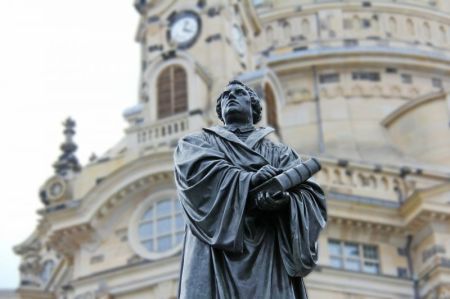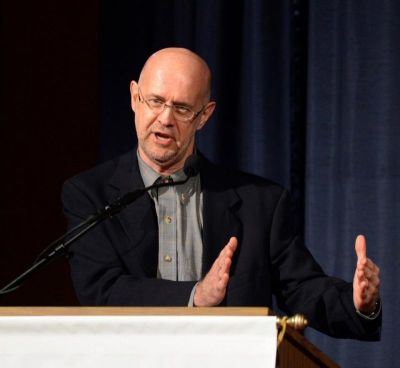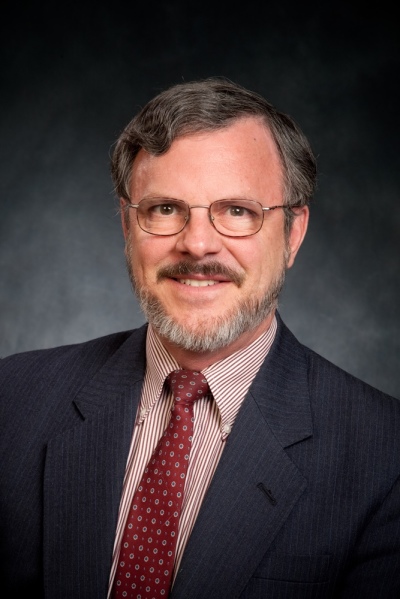Over 250 Protestant Leaders Sign 'Reforming Catholic Confession' on Essentials of Christian Faith

Over 250 prominent scholars, pastors, and church leaders from around the world released on Tuesday a theological statement affirming the essentials of the Reformation. And its Protestant authors contend that in this 500th anniversary year, the document is a "catholic" statement in its best sense.
The Reforming Catholic Confession is a document which outlines the main theological commitments held by a wide breadth of Protestant Christians, including evangelicals, since the Reformation. The purpose of such a statement is to demonstrate the remarkable togetherness that exists throughout the world among Protestants on the core elements of Christianity, said Jerry Walls, an author and professor of philosophy at Houston Baptist University.
Despite how some Roman Catholics fasten the divisions within Protestantism as a case against it, including the joking about there being 33,000 different denominations — as if the entire legacy of the Reformation is endless religious splintering — the Confession showcases the extensive agreement on the substance of the historic Christian faith, Walls told The Christian Post.
The statement's signatories include a sizable list of biblical heavyweights who hail from a variety of traditions. Over 110 Christian institutions, over 30 of which are international, are represented.

"I just got the idea that one of the best ways we could actually commemorate the Reformation, and remind people of what really lay behind it and what motivated the Reformers was to come up with a confession of faith that represented the substantial unity among the heirs of the Reformation," Walls said.
He summarily wrote to several biblical scholars and theologians about the idea, all of whom responded favorably, including Kevin Vanhoozer, a professor of systematic theology at Trinity Evangelical Divinity School in Deerfield, Illinois, and author of Biblical Authority After Babel: Retrieving the Solas in the Spirit of Mere Protestant Christianity.
As Walls, who is Wesleyan, and Vanhoozer, who is Reformed, began working together and continued reaching out to even more people across the denominational spectrum to join them, the momentum for the project only increased and a palpable excitement was afoot.
"What I really started to sense was that this thing could really be significant," Walls said. "It was just beautiful to see Pentecostals and Lutherans working together to find common language."
The Reforming Catholic Confession contains 12 articles that outline their beliefs in such basic Christian tenets as "The Triune God," "The Atoning Work of Christ," "The Gospel," and "The Church," particularly as it relates to what the Reformers accomplished.
The beliefs are followed by 25 "why we say what we say" explanations that capture key cornerstones and dimensions of the Christian faith. No single group of participants got every single thing they wanted expressed in the document, which underwent multiple drafts and lengthy revisions, but they nevertheless arrived at a mutually agreed upon declaration.
"The question was not 'Does this statement say everything you would want it to say, but 'Can you agree with us thus far?'" Walls said.
As for why they decided to call it a "catholic" confession, Walls said he felt it is important to reclaim the word "catholic."
"The Church of Rome simply calls itself, 'The Catholic Church.' It is not the catholic church,'" he emphasized. "It is one part of the holy catholic church."
"We want to make clear that 'catholic' is a much more expansive reality than the church of Rome. And we want Protestants to understand that when they are true to their own heritage, and their own roots, they are 'catholic' also."
The genesis of the statement began earlier this year as Walls was researching for his upcoming book, Roman but Not Catholic: What Remains at Stake 500 Years After the Reformation, which he wrote with Kenneth Collins. One of the things the two authors emphasize is that Protestantism is a better representation of true Catholicism than Roman Catholicism is.

On Oct. 31, Protestant evangelicals around the world will mark the 500th anniversary of the start of the Reformation, when Martin Luther nailed 95 theses to the door of Castle Church in Wittenberg, objecting to corrupt practices of the Roman Catholic Church, most notably the selling of papal indulgences.
"A lot of people have been asking the question 'Is the Reformation over? Was it a mistake?" said Kevin Vanhoozer, who took charge of the drafting the initial statement, in an interview with CP.
"I would say that there is a permanent gain that we shouldn't lose."
The Reformation was not "a Pandora's box that unleashed an interpretive anarchy and schism upon the world," he stressed.
"In fact, Protestants have always agreed about the essentials. What has happened is where we disagree about some things, and as it is with every family, when you disagree and you have so much in common, it is because you have so much in common that the disagreements look so much larger."
Article 2 of the Confession addresses "Holy Scripture" and the line Protestants are famous for: "sola scriptura." This is the phrase that underpins the Roman Catholic joke about Protestants having tens of thousands of denominational groups due to the variety of ways the Bible can be interpreted without a magisterial authority like the Roman Catholic Church has.
"Scripture is God's inspired and illuminating Word in the words of his servants (Psa. 119:105), the prophets and apostles, a gracious self-communication of God's own light and life, a means of grace for growing in knowledge and holiness. The Bible is to be believed in all that it teaches, obeyed in all that it commands, trusted in all that it promises, and revered in all that it reveals," the article reads.
As English speakers, "sola scriptura" is frequently misunderstood, Vanhoozer told CP, noting that the phrase is frequently interpreted as "Scripture alone" as though it is somehow "apart from the Church, apart from tradition, and apart from the Holy Spirit." But "sola scriptura" does not mean that whatsoever when taken in its rightful, theological context, he said.
"The Reformers wanted to read scripture with the communion of the saints," Vanhoozer said, noting how important it was for both Luther and John Calvin to articulate that they were in line with Christian orthodoxy.
"And in part the reason they wanted to say that is because Scripture itself leads us to believe that the Spirit will lead the Church into all truth, that the Spirit will not abandon the Church to the vagaries of individual reading."
The phrase "Scripture alone," he said, does not mean that it is the singular voice people ought to consult but that the Word of God does have supreme authority.





















